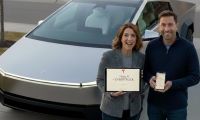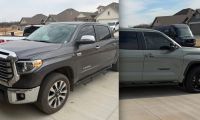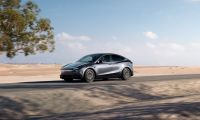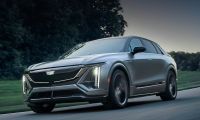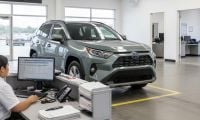The original plans for the first Tesla Gigafactory in Europe in Grünheide, near Berlin, have changed. At the beginning the project included - in addition to the car manufacturing plant - facilities to manufacture the new 4680 battery cells. Now the Austin manufacturer has decided to review the project and take the manufacturing equipment for these cells to Giga-Texas in Austin. Only the electrode production machines will remain in Berlin, while the rest of the equipment will be permanently withdrawn; there are several reasons that could have led Tesla to make this decision.
As we can recall, Elon Musk assured – via Twitter - back in 2020 that he would be testing "a lot of new technology" at the German plant. Tesla is currently building the 4680 cells at its pilot plant in Fremont, California, though the automaker's goal is to achieve full-scale production before the end of the year at the Texas Gigafactory. Plans included setting production in Berlin on a similar schedule as well; but there actually are various reasons behind the decision to move it to Texas.

As reported by Thomas Jahn from German Handelsblatt newspaper, Tesla planned to move some battery cell manufacturing equipment from Berlin to Texas, and the move was suspected to have something to do with the new electric vehicle tax credit in the US that basically forces EV automakers to use locally produced battery cells. However, the reason is not entirely clear yet.
On the other hand, the huge current energy crisis in Germany (and in Europe in general) would not entirely explain the decision either. So, another reason that is being considered is that Tesla could actually be waiting to be able to access German subsidies in order to build that cell factory. And in addition to that, Elon Musk's possible fears about the developments in the Russia-Ukraine war, which is allegedly why he would be trying to protect his machines by locating them in a safer, far away place like Texas.
Behind these political decisions a technical reality could in fact be considered: according to the publication, this measure is a consequence of the problems that dry battery electrode (DBE) coating technology is creating, which is not yet ready for large-scale production. All the teardowns done of the 4680 cell apparently show that it would finally be just a big, ordinary NMC 811 cell.

Handelsblatt spoke to five experts, two of whom are very close to Tesla, about the difficulties in producing these kind of cells. According to them, DBE - dry battery electrode - technology is "working quite successfully, but it needs to be implemented in large series". That is, the technology is good and ready, but Tesla does not quite know yet how to actually manufacture the cells in large volumes, a key fact that would make them economically feasible. In practical terms, they are allegedly still far from having a commercial product ready.
Tesla Is Moving Machinery to Make 4680 Cells from Germany to Texas - autoevolution https://t.co/Td0QcZ26bK
— Machinery Report (@MachineryReport) October 14, 2022
Finally - and probably most importantly – there are rumors widely spread (though not officially confirmed yet) that Tesla may have signed a supply contract with Chinese BYD to incorporate the new "Blade" batteries into its Berlin-made electric cars, a fact that if proven true, would somehow also explain this decision. With this deal, in practical terms Tesla would already have the cells it needs to ramp up production at the Berlin Gigafactory, and would explain why it is okay with falling behind in cell production in Germany. But in the end, at this point only Tesla will be able to explain the reason for bringing these machines to Austin, Texas.
Source: handelsblatt
All images courtesy of Tesla Inc.
Nico Caballero is the VP of Finance of Cogency Power, specializing in solar energy. He also holds a Diploma in Electric Cars from Delft University of Technology in the Netherlands, and enjoys doing research about Tesla and EV batteries. He can be reached at @NicoTorqueNews on Twitter. Nico covers Tesla and electric vehicle latest happenings at Torque News.
Set as google preferred source







